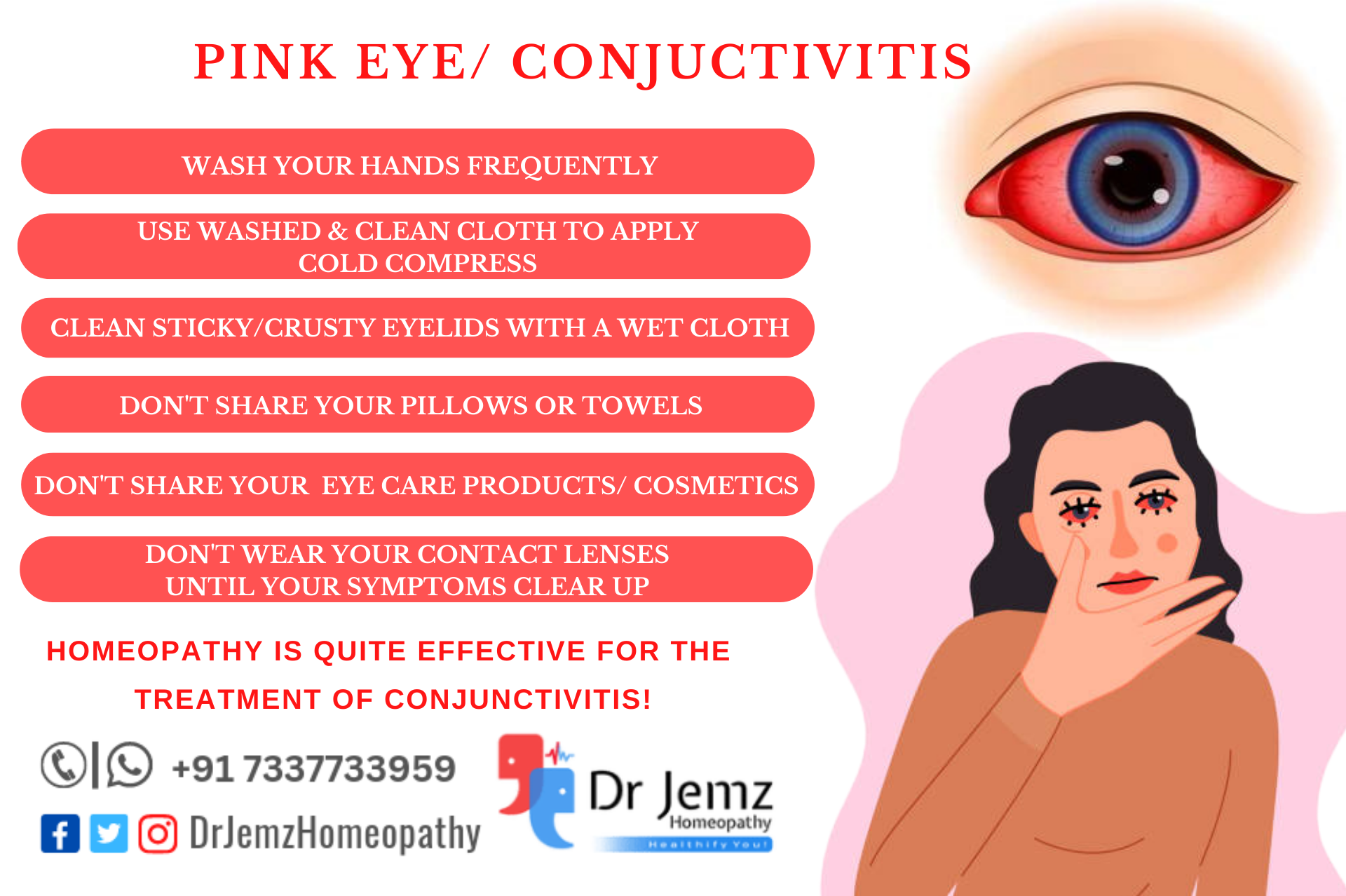A bacterial or viral infection, an allergic response, or, in infants, an incompletely opened tear duct are the most frequent causes of pink eye.
Other causes include that causes conjunctivitis includes interior and outdoor air pollution brought on, for instance, by smoke, dust, fumes, or chemical vapors , foreign bodies in the eye (such as a stray eyelash), contact lens use, Insects, parasites, and fungus.
What are the signs and symptoms of conjunctivitis?
The following are the most prevalent pink eye symptoms:
- One or both eyes are red.
- Itchy eyes in one or both
- Sand-like sensation in one or both eyes
- Discharge from one or both eyes that create a crust overnight and may prevent your eye(s) from opening in the morning.
- Tearing
There could be additional symptoms, depending on the cause.
Viral conjunctivitis:
Adenovirus normally causes the majority of pink eye cases, although other viruses, such as the one that causes coronavirus disease 2019 (COVID-19), herpes simplex virus, varicella-zoster virus, and others, can also cause pink eye.
It is possible to have symptoms of a cold, flu, or other respiratory illness.
It usually starts in one eye and might spread to the other within a few days.
Eye discharge is generally watery rather than thick.
Bacterial conjunctivitis:
More frequently linked to discharge (pus), which can cause the eyelids to cling together
Occasionally happens together with an ear infection
The use of improperly cleaned or rented contact lenses might result in bacterial conjunctivitis.
Allergic conjunctivitis:
An allergic reaction to substances like pollen or mold spores can cause an eye irritation known as allergic conjunctivitis. Furthermore, you may be suffering from severe itching, tearing, and inflammation of the eyes, as well as sneezing and runny nose if you have allergic conjunctivitis.
Irritants caused conjunctivitis:
Conjunctivitis can also be caused by a chemical splash or a foreign body in the eye. Redness and irritation can occasionally result from flushing and washing the eye to remove the chemical or object.
Watery eyes and a mucous discharge are the common symptoms that usually go away on their own after about a day.
What is the conjunctivitis treatment and prevention?
Bacterial or viral conjunctivitis can spread fast, whereas allergic conjunctivitis does not.
Here are some tips for managing allergic conjunctivitis at home:
- Wash your hands frequently
- Avoid rubbing your eyes as this might aggravate your symptoms.
- Use washed and clean cloth to use as cold compress
- Clean sticky/crusty eyelids with a wet cloth
- Don't share your pillows or towels
- Don't wear your contact lenses until your symptoms clear up.
Can homeopathy cure conjunctivitis?
Mild cases of pink eye, whether bacterial or viral, can resolve on their own in a few days, without the need for medical help. However, Homeopathy is found to be more effective in the treatment of conjunctivitis where there is medical treatment is needed. By treating the disease's underlying causes, these medications are able to cure the symptoms of conjunctivitis. It is a fallacy that homeopathic medicines act slowly; instead, following a homeopathic prescription can significantly shorten the length of this disease.
Reach out to us for the treatment!

